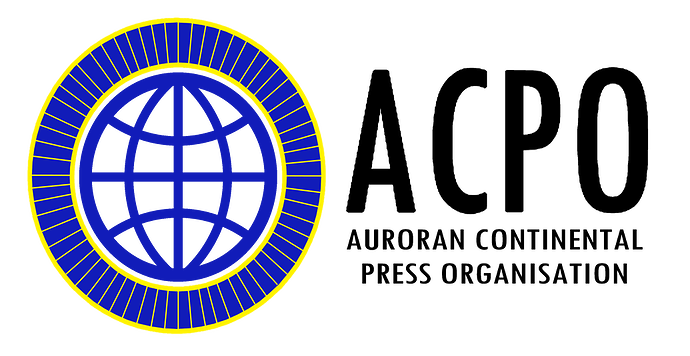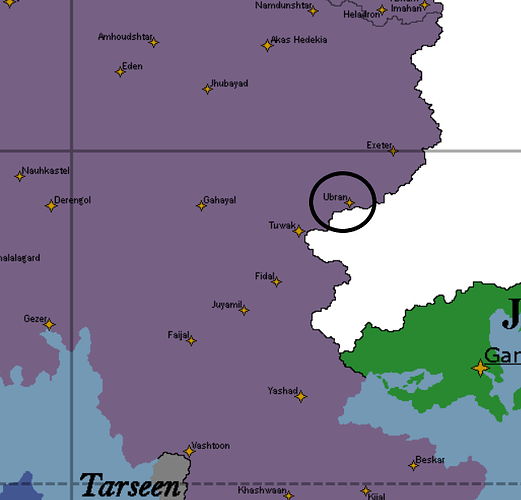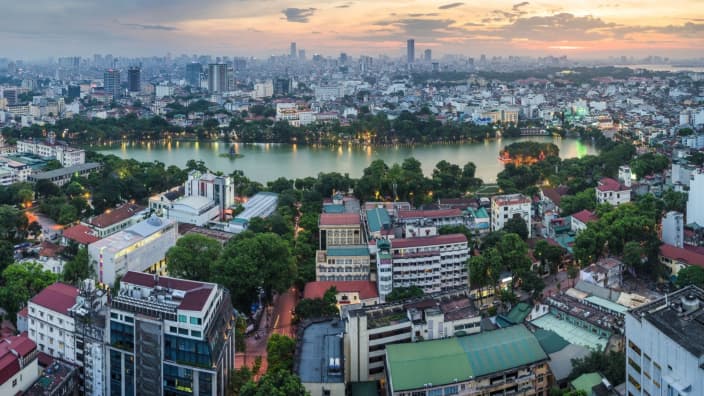Journey to City of Genies: Ubran, Packilvania (Part I)
Motui Tuatuma
Packilvania is often perceived as a brutal place where people live under the constant fear of religious and ethnic persecution. There is no denying that Packilvania has many challenges. However, the media in liberal democratic countries often ignores the incredible progress that the country is making, the brutal history it is recovering from and still affected by, and the fact that the lives of its people are starkly different than expected.
ACPO has written several articles that do not necessarily reflect well on Packilvania. They wrote an article about why Packilvania is a dictatorship, and about Packilvania sanctioning Axdel. The SEY News wrote about how an irredeemable despot rules Packilvania, and how its banking system is hopelessly corrupt. So, it is easy to see how one’s perceptions of this faraway, isolated country can be negatively skewed. While there is truth to some of the criticisms against this country, there are many misconceptions and prejudices.
I decided to travel to this country for a few weeks. I reached out on the website Chatter, a social media application from Packilvania to people in Packilvania to host me and show me about it. Through my friend, Ulmahid who was an exchange student at the University of Tokapa, I met Yalkhad, who agreed to be my tour guide and host.
I applied for a visa from the Packilvanian embassy in Tokapa. I paid about 100 KRB. The process was admittedly arduous as I had to submit several documents, get travel insurance, provide my itinerary and undergo an interview. It took about 2 months to get my visa which is valid for about 90 days. I charted a flight with Rekomi Airlines from Tokapa International Airport and had a layover in Astryon for about a day.
I then flew to the Supreme Magister Exarion VI International Airport in Ubran, a city in the Packilvanian province of Fidakar, with a population of 8.9 million people. Ubran is a bustling metropolis located deep inland.
The city sits on the banks of the Yukud River which originates from the Uliveru Mountains in Tasselvalta, the northernmost region of Fidakar. It is surrounded by mountains. The weather is hot and it rains often. As my plane approached, the tall gleaming skyscrapers of downtown rose like shining pinnacles on the shores of the mighty river that formed Packilvania’s southeastern frontier.
Yalkhad picked me up from the airport. He was a Shirazi Packilvanian, wiry and balding, but full of excitement. He drove me to his house tucked in the Makhees Kilmayon Ashkhanad district named after a struggle icon in the Carriers of Mercy. We drove through streets bustling with activity as hawkers sold vegetables and knick-knacks on the side of the road. Business people wearing white robes and black cloaks hurriedly ate food cooked by old women in narrow market alleys. Bicycles and cars competed in the narrower streets with bicycles seemingly winning the battle, forcing cars to give way. Not far from apartments were offices, malls, workshops and warehouses.
City officials armed with flags, whistles and reflector jackets tried to aid the traffic lights in coordinating the chaos. Large trucks picked up rubbish as people dressed in yellow overalls swept the streets. A gregarious old man was waving a book on whose cover I glimpsed “Bas Magdamar”. At the top of his lungs, he “proclaimed the good news of the coming of Pax” (as Yalkhad explained). Between grungy apartments and glass skyscrapers sat temples (majhid) decorated with colourful ceramic tiles and geometric patterns and seemingly built hundreds of years ago. From their high towers (minaret), priests (imam) chanted a call to prayer that both marked the day and oriented a busy city to acknowledgement and reverence of the divine.
After an exciting introduction to a great city, Yalkhad took me home. We navigated through narrower streets, where cars were infrequent and drove slowly. Children playing in the middle of the road would pause their games and wave and smile at us as they made way for our vehicle which felt like an intruder. We reached his house, more a townhouse of three stories, which sat at the end of a long driveway and was concealed by trees and shrubs.
Yalkhad helped me with my bags and insisted that he carry them, despite my willingness and ability to do it myself. I relented as his wife enthusiastically welcomed me. “Ashamiliya”, she said repeatedly, a word I heard learnt meant to assimilate. While the word had previously conjured images of Packilvanian military invasion, it meant to be in harmony and unity of spirit with Noi, oneself and each other.
The children jumped about and tugged my clothes and carried my things inside. Yalkhad’s wife, Ismariya, had prepared a banquet featuring a variety of delicacies. Ismariya asked me to take off my shoes at the threshold of the house and offered me a comfortable pair of slippers. We entered the house and after I was shown my room and given a chance to gather my wits and find my bearings, I was shown to a large room which simply had a carpet and a long low table called a jhabad where many dishes were laid before me. Sauteed buffalo beef strips cooked in various spices and herbs, octopus slices served with lemon and coriander, fried soybean cubes served with chilli paste, sesame seeds, green onions and so much more. After gorging myself on the exquisite fair, I was treated to traditional coffee served in ornate copper jugs. The children ate with us and simply looked at me with fascination and giggled among themselves and I spent most of the time conversing with Yalkhad, the only member of the family who spoke Staynish/Codexian.
He was a businessman who owned a supermarket and laundromat (which explained the magnificent house). He often did business with foreigners, buying goods from abroad, which forced him to learn the language. He told me that from many engagements with foreigners, he always got the sense that people feared or hated his country. He was always troubled and confused because while he had grown up in poverty under the Communist Party, he had become a wealthy man. He says that the cities were constantly changing and developing as new high-rises filled the skyline or a metro line was laid. He was so proud of his country and so grateful to the imperial family that he found it odd that so many people from other nations reviled them. So, he has resolved to invite foreign guests to his home and show them his country. I was one of many guests who had graced his home. He was not alone in this pursuit and many groups and individuals welcome tourists into their homes as he does.
In part two of this article, I will share the rest of my experience including a visit to the downtown, the Majhid of the Solitude, and the forests of Jubrakhad to see tigers. Stay tuned.


